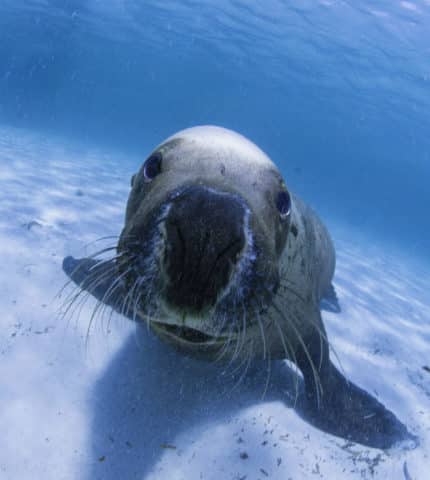Demystifying law reform
At Humane Society International we rightly place great emphasis on law reform. Laws are important because they set the rules for how animals are treated—whether they be animals in human or wild environments. Weak…
The Federal Senate is currently conducting an inquiry into the Government’s Stage 2 Nature Positive reforms. The inquiry will report on the proposed creation of a new national environmental regulator, Environment Protection Australia (EPA); a new data body, Environment Information Australia (EIA); and strengthen compliance and enforcement powers and penalties. This gives you a chance to tell the Government you want amendments to the laws to better protect our precious wildlife and their habitats. Submissions on the legislation are due on 15 July 2024.
What are the Nature Positive Bills?
The Government has described these bills as Stage 2 of their overall Nature Positive reforms. Stage 1 included expanding the ‘water trigger’ and introducing the nature repair market. Stage 2 involves creating an EPA, EIA, and strengthening compliance and enforcement powers and penalties. Stage 3 will progress the rest of their environmental law reforms.
Stage 2 includes the following bills:
The Nature Positive (Environment Protection Australia) Bill 2024 to establish the EPA, to be led by a Chief Executive Officer (CEO).
The Nature Positive (Environment Information Australia) Bill 2024 to establish a statutory Head of EIA.
The Nature Positive (Environment Law Amendments and Transitional Provisions) Bill 2024 that provides the EPA CEO with a range of powers and functions under nine environmental laws and amends the Environment Protection and Biodiversity Conservation Act 1999 (EPBC Act) to confer compliance powers on the EPA, introduce protection order and audit powers, and provide for the Minister and Secretary to delegate powers to the CEO of the EPA.
Have your say
The Stage 2 bills have passed through the House of Representatives and are now being considered in a Senate Inquiry. The Inquiry will make recommendations on whether the laws should be passed by the Senate and any amendments that should be made.
The Senate is currently accepting submissions on the Stage 2 bills.
To see all the materials available and to make a submission to the Senate Inquiry visit the Inquiry’s webpage here.
Submissions close on 15 July 2024.
What does HSI Australia think?
Humane Society International (HSI) Australia has long been calling for a national EPA and welcomes the Government’s recognition of the importance of environmental data in reversing the extinction crisis. The Government’s increased focus on compliance and enforcement is decades overdue.
While an EPA and EIA are important institutions, in the face of the current extinction crisis, the Stage 2 reforms don’t go nearly far enough. More is needed to ensure the EPA and EIA are truly independent and effective, and we need to urgently see additional reforms now so that nature gets improved protections now. In our view, there is no reason to delay on amendments that can remove existing exemptions and create stronger protections immediately.
You can use the below points to craft your submission. The more you use your own wording, the better!
Environment Protection Australia
The EPA will be responsible for compliance and enforcement activities under a range of national environment legislation and be given decision-making responsibilities for some decisions under the EPBC Act.
The EPA must have an independent Board of suitably qualified members that is responsible for appointing the CEO and obliged to report on EPA activities to Parliament.
Clear obligations and duties for the EPA must be established, and the Minister’s ability to issue a Statement of Expectations for the EPA must be constrained by them. These duties must require the EPA to protect and restore Australia’s environment; ensure outcome-focused and transparent decision-making with strong community engagement; and provide for robust compliance and enforcement responses, under both standard and accredited decision-making processes.
An independent EPA will also need a strong set of National Environment Standards to guide decision making to protect and recover our threatened wildlife and their habitats. The proposed decision-making delegation processes must not undermine the EPA’s independence.
Environment Information Australia
Environment Information Australia will play an important role in coordinating data to help in recovering threatened species, including obligations to complete State of the Environment reports every two years, develop environmental economic accounts, and implement National Environmental Information Assets. These are important functions that will help to better understand and manage our natural environment.
The EIA must also have specific reporting obligations in relation to the progress of threatened species recovery measures, strategies and outcomes as well as measures to control key threats. This will ensure Australia can better track whether our threatened wildlife and their habitats are on a path to recovery.
Legislation creating EIA will also define ‘nature positive’ – the key concept that will underpin our new national environment laws. It’s vital that the definition of ‘nature positive’ reflects internationally recognised best practice definitions focussed on measurable repair and recovery. That means ensuring the definition fully captures both species and ecological communities and setting a baseline against which progress towards nature positive can be measured – to be consistent with the international definition of ‘nature positive’ this should be the year 2020.
Nature urgently needs more
With more than 2,000 threatened species and ecological communities identified as facing an extinction risk, and more being added every year, imperilled wildlife cannot afford any further delays on the implementation of stronger environmental protections. Stage 2 must go further and implement stronger protections for nature now.
Existing commitments to rule out unacceptable impacts, protect critical habitat, and implement strong National Environmental Standards must be brought into Stage 2.
We also need the government to close the loopholes and exemptions in the EPBC Act, such as those that permit unassessed land clearing and shark culling programs to continue without assessment and those for Regional Forest Agreements. We must also ensure that key issues such as climate change and deforestation are properly embedded in the Act.
Want more information?
All of the issues above have been covered in more detail in our Nature Law Explainers. See the full list of Explainers here.
The Environmental Defenders Office has also provided a submission guide that considers some of the legal issues in more detail. Read their submission guide here.
Want to know more about the law reform process? Check out our blog Demystifying Law Reform by our Head of Campaigns Nicola Beynon.
To see the Nature Positive bills and supporting materials and find out to make a submission, please visit the Senate Inquiry website.
Submissions close on 15 July 2024.

At Humane Society International we rightly place great emphasis on law reform. Laws are important because they set the rules for how animals are treated—whether they be animals in human or wild environments. Weak…

2023 holds a lot of promise for nature. The Federal Government has committed to strengthening our national environmental laws to deliver on their goal of no new extinctions. They have proposed a Nature Repair…

Humane Society International welcomes agreement being reached at COP 15 in Montreal on the Global Biodiversity Framework. If governments go home and get to work on thoroughly implementing what they have agreed to at…